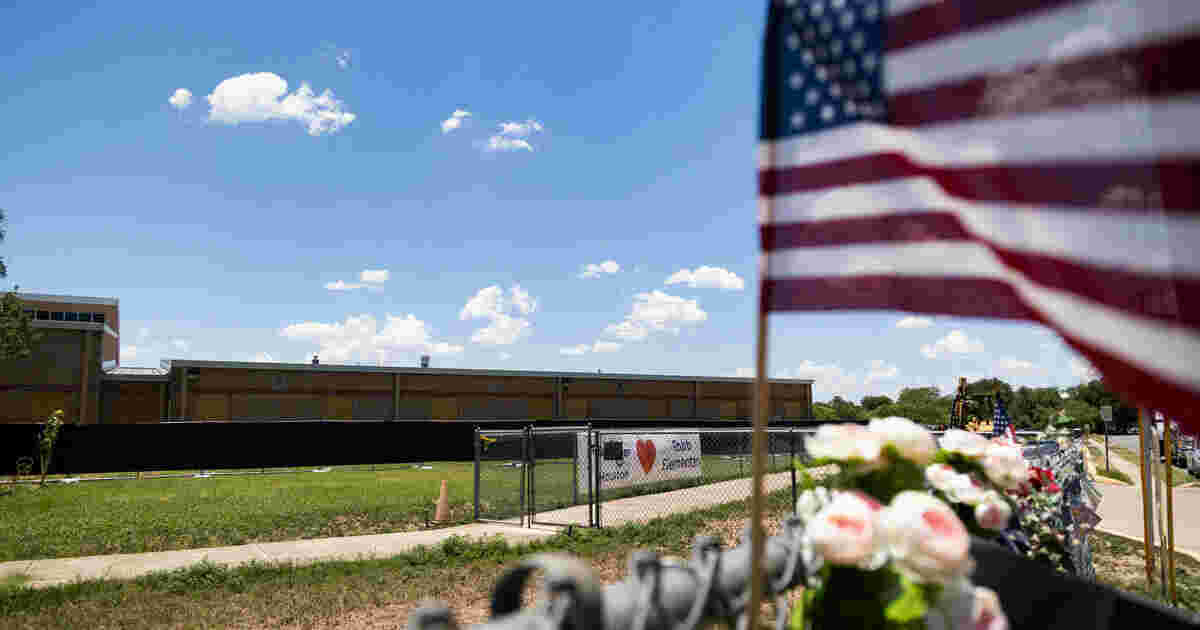Uvalde Police Fail to Release All Body Camera Footage From Robb Elementary Shooting
Uvalde, Texas officials have admitted they failed to release all officer body camera and dashboard footage related to the 2022 Robb Elementary School shooting, a violation of a settlement agreement with news organizations. The oversight was revealed after the city released hundreds of records to news organizations, including ProPublica and The Texas Tribune.
An officer informed the Uvalde Police Department that some of his body camera footage from the May 24, 2022, shooting was missing. This led to an audit of the department's servers, which uncovered "several additional videos." The city hasn't disclosed which officers or cruisers the missing footage belonged to.
Initially, Uvalde police told Texas Department of Public Safety investigators that seven of the 25 responding officers had their body cameras turned on during the shooting. The records released on Saturday only included footage from five officers. It's unclear whether the newly discovered materials only relate to the two remaining body cameras or include footage from additional officers.
The newly discovered footage has been shared with District Attorney Christina Mitchell for review. Chief Homer Delgado has also ordered an internal affairs investigation into how the error occurred. This probe will determine who is responsible and what disciplinary actions might be taken.
"I have ordered an immediate review of all footage collection and storage protocols within UPD and will institute a new process to ensure our department lives up to the highest standards," Delgado said in a statement. "The Uvalde community and the public deserve nothing less."
It remains uncertain whether Mitchell, who hasn't responded to requests for comment, had access to the footage while evaluating potential criminal charges against officers for their response to the shooting, which resulted in the deaths of 19 children and two teachers.
A grand jury in June indicted former Uvalde school district police Chief Pete Arredondo and officer Adrian Gonzales on felony child endangerment charges. Both men pleaded not guilty. No Uvalde Police Department officers have been charged.
Multiple news organizations, including the Tribune and ProPublica, sued various local and state government bodies more than two years ago for access to records related to the shooting. While the city settled with the news organizations, agreeing to provide requested records under the state's Public Information Act, including body camera footage from all responding officers, three other government agencies – the Texas Department of Public Safety, the Uvalde Consolidated Independent School District, and the Uvalde County Sheriff's Office – continue to resist releasing any records.
Reid Pillifant, an associate attorney representing the news organizations, expressed appreciation for the Police Department's "quick response in conducting an audit to ensure all relevant materials are shared with the public as soon as possible."
ProPublica and The Texas Tribune, along with FRONTLINE, independently obtained a trove of investigative materials through a confidential source. This trove includes the body camera footage of two Uvalde police officers – Jesus Mendoza and Joe Zamora – which wasn't released on Saturday. The newsrooms analyzed Mendoza's 25-minute-long footage and his interview with state investigators as part of an investigation into law enforcement's botched response, which included a documentary. The footage revealed that while the children knew what to do when confronted with a mass shooter, many officers did not.
Zamora's body camera footage, which is only about eight minutes long, appears to show him at the house belonging to the gunman's grandmother, whom the teen shot in the face before going to the school. The footage includes a crying woman saying, "I knew it was my nephew," adding that "he didn't want to live anymore."
Uvalde Police Failed to Turn Over All Body Camera Footage From Robb Elementary Shooting, Department Says
After an officer noticed that part of his bodycam footage was absent from a recently released trove of records, an audit found “several additional videos” that were not included. It’s unclear if prosecutors previously had access to this video.



